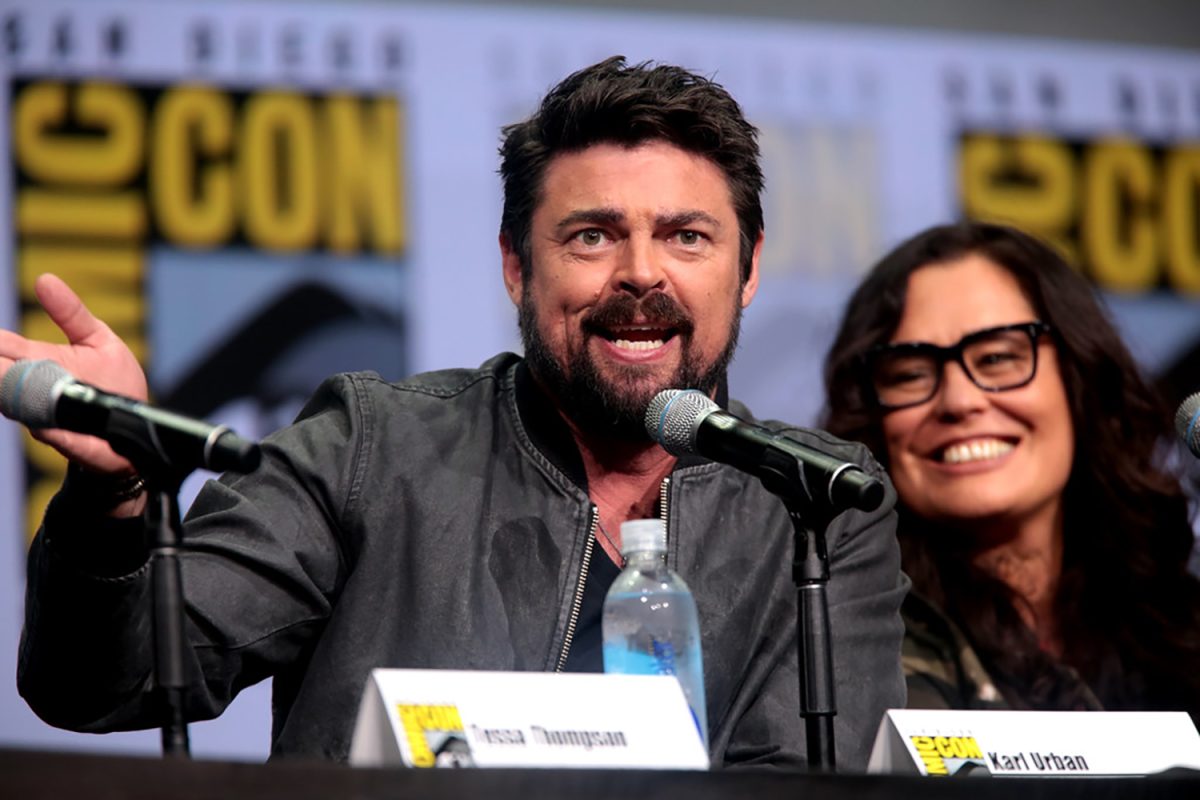After a nearly two-year wait, the fourth season of Amazon’s hit superhero satire “The Boys” has wrapped up. The third season of the show was packed with huge climactic moments that had been built up for three years since the series premiered, so this newest installment in the grimy, gruesome world of over-the-top awful superheroes had a lot of work to do in establishing a new status quo.
The first few episodes take things slow, refreshing the series’ stakes as we find Homelander — everyone’s favorite love-to-hate antagonist — standing trial for his actions in the previous season. At the same time, Hughie reconnects with his father, Butcher works on freeing his son from Homelander, and the rest of the Boys confront their demons.
It became clear after the first episode of the season that the tone had shifted. If season three of “The Boys” was the bombastic midpoint, I’d call this the therapy season.
Similar to the most recent episodes of “The Bear,” we spend much time with characters interpreting the innermost depths of their interiority isolated from the ensemble. I found this especially engaging for characters like Butcher and Annie, who have arguably been through the most throughout the series’ run.
For other central characters like Frenchie, Kimiko and Hughie, however, I could feel my interest slowly fading whenever a scene cut to their stories. Frenchie’s arc finds him at the most guilt-ridden he’s ever been over his past life as a contract killer, Kimiko also feels guilty for the death she caused in her past, and Hughie is stuck in a hospital room for five episodes watching over his ill father.
These arcs felt like ways to keep the characters busy while the show set its laser-beam eyes on the true star of the show: the satire. “The Boys” has always been a very politically charged show, but this season compounds the meta-commentary to the highest degree yet.
Mirroring our world, America in “The Boys” is in a fraught election cycle. The major issue on the fictional ticket? Superhero rights. As silly as that feels to type out, the central conflict of the season is all about the race for the White House. Homelander exerts his wannabe fascistic power over politicians to enact his grand scheme for a total superhero takeover. Meanwhile, the Boys work with the Democratic nominee to find a way to stop the apocalypse.
It’s all very heavy-handed — as the show always has been — but the hyper-current satire sometimes got on my nerves. While it is true that satire should do that, it felt like the jokes directed specifically toward real-world movements became a crutch when the show had nowhere else to go.
After almost every scene in which something drastic to the main plot happens, we get a cut-away eerily akin to “Family Guy” to a Fox News parody anchor saying something like “Make America Super Again.” It’s funny the first time, but once the joke was repeated in the same fashion every episode of the season, I got tired of it.
“The Boys” has never been a subtle show, but its blunt messaging still had things to say beyond “Isn’t this ridiculous?” Don’t get me wrong — much of what happens on Homelander’s rise to power is ridiculous, but I miss moments where the obvious political metaphors were executed with some cleverness.
Season two, episode seven opens with a character we’ve never met before: a regular working-class guy surrounded by the vitriolic propaganda spewed by Homelander and a fictionalized Alex Jones-type commentator. We follow a few days in his life in a short two-minute montage as he is radicalized by fear-mongering online content and convinced the convenience store attendee he sees every day must be a “super-terrorist” leading to a violent encounter. We never see that character again, but it’s an incredibly well-made and somber scene that shows the consequences of the main plot.
The show is far beyond that now, satirizing real-world issues with borderline reckless abandon. There isn’t much commentary anymore beyond a cheap laugh. But at the end of the day, a cheap laugh is still a laugh.
So the character work is lacking and the satire lacks the same bite, but at least “The Boys” has a bright future. Above all else, this season felt like it was moving pieces around to set the stage for the fifth and final season. Without getting into spoilers, the final episode ends with a montage set to “Heart-Shaped Box” by Nirvana and sees all our favorite protagonists captured by Homelander as his factions finally take control of America. While it can be frustrating to feel as though eight episodes entirely served to set up another season, if you put Nirvana in anything, I’ll enjoy it.
“The Boys” season four is often disappointing, but if you’re looking for a mindless, violent action show with plenty of laughs, it’s still worth checking out.



